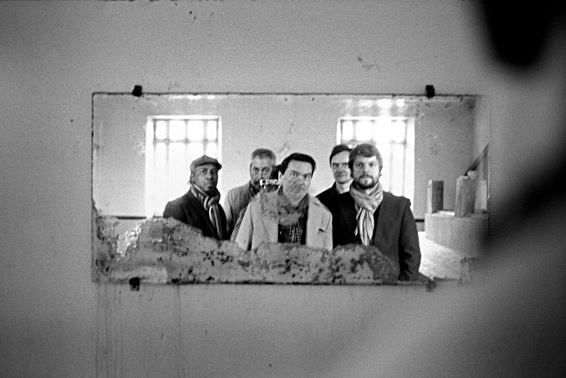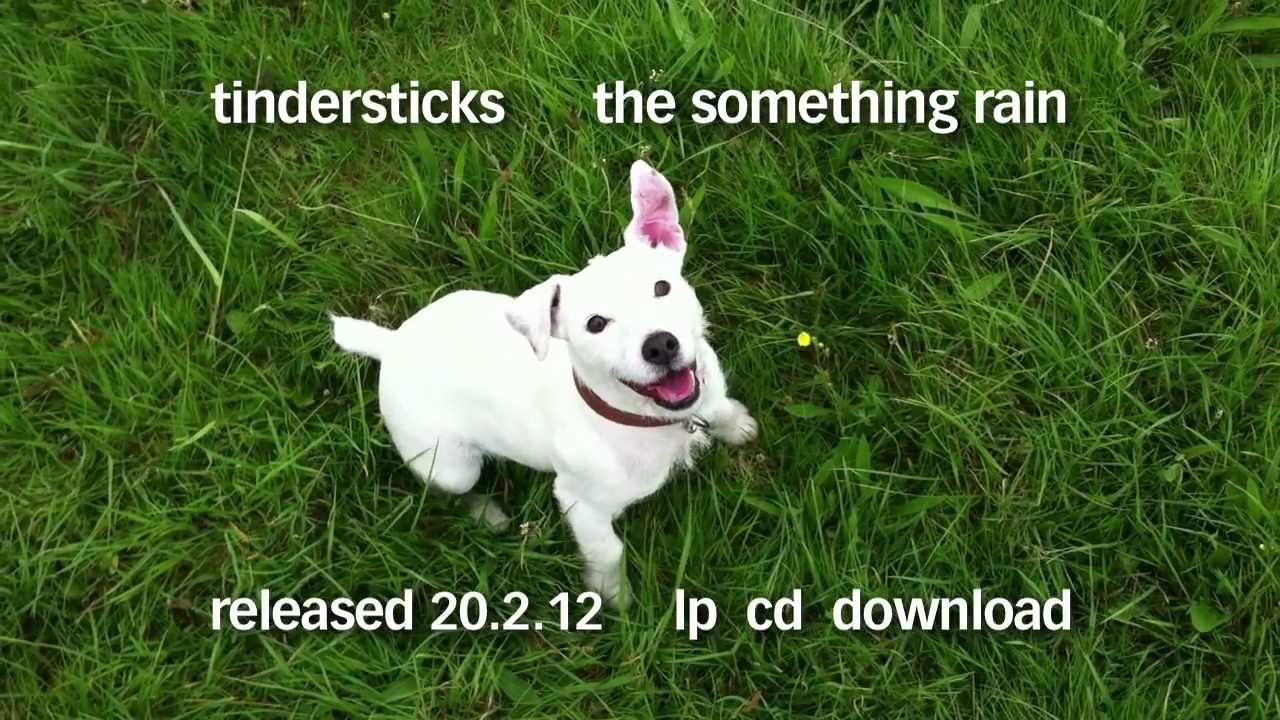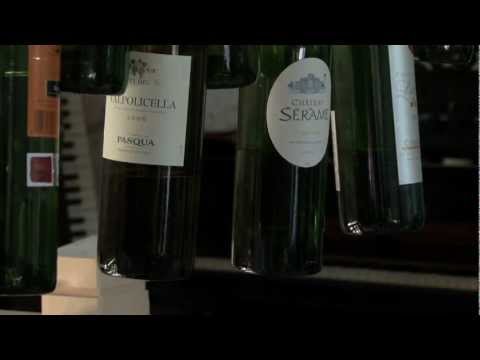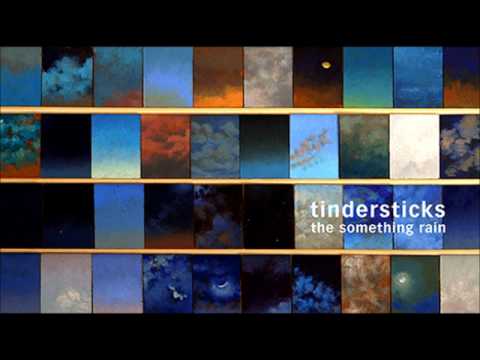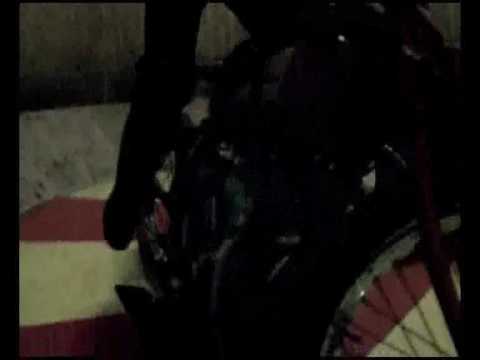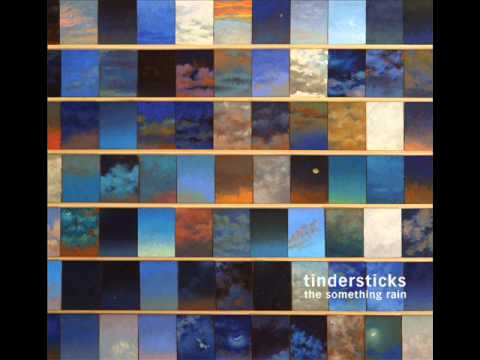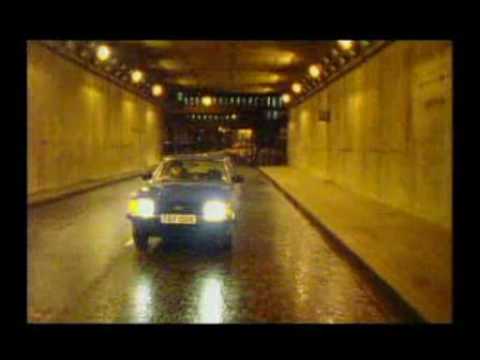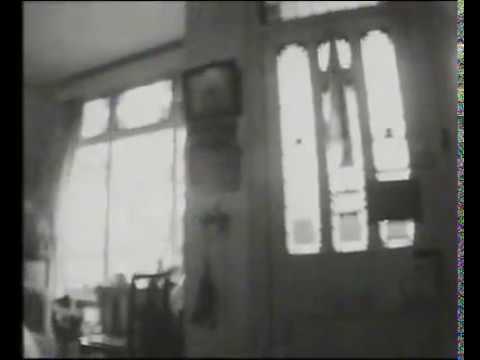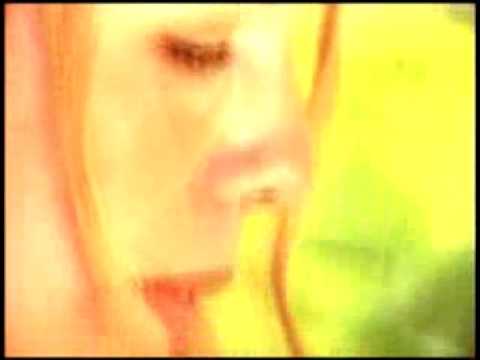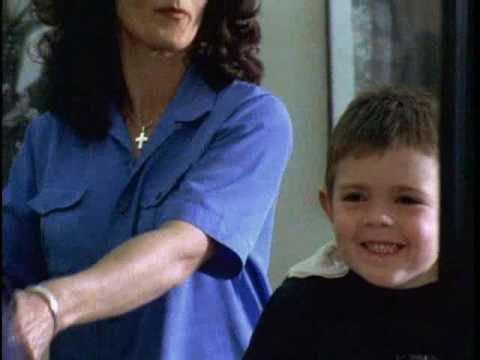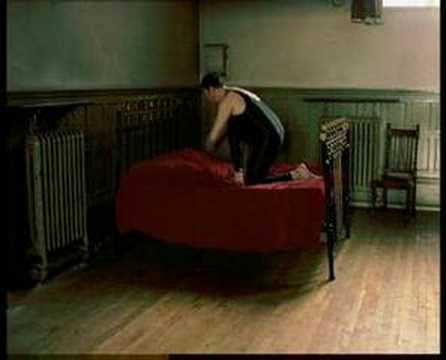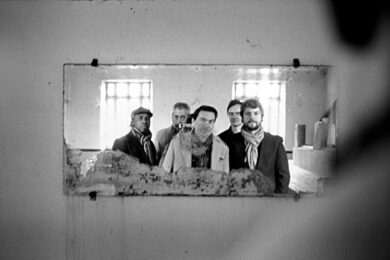Twenty years ago, six young men from Nottingham – dishevelled of hair and tailored of suit – started making demo tapes together. These old souls had known each other for years, and made music as another group, Asphalt Ribbons, spending time trying to sound how they thought they should sound. Then they changed their name, stopped trying to fit in, and the bones of the first Tindersticks album started slotting together.
Twenty years later, the three men that are left – Stuart Staples, David Boulter and Neil Fraser remain, Dickon Hincliffe, Al Macaulay, and Mark Colwill are long gone – have found peace again, somehow. Their ninth album,The Something Rain, jolts, shakes and whirls. Imagine the Tindersticks being visited by the ghost of Arthur Russell, bringing in the eerie voices of old beatboxes, synthesisers and samplers, more whirling, free woodwind courtesy of long-term collaborator Terry Edwards and new boy Julian Siegel, and different rhythms and inspirations from their new rhythm section (bassist Dan McKinna and drummer Earl Harvin).
The old Tindersticks, in mood, is still very much there – deep seams of violent emotion, sadness, and vin rouge-sodden filth – and The Something Rain also begins with the boys back in Nottingham, in their twenties again, but with David Boulter, not Stuart Staples, telling us a story.
Both men are far from Nottingham now. Stuart is in his home of seven years in rural France, with his wife Suzanne and their five children; today he is pottering around the kitchen, sounding bright, laughing often (this interview took place before his recent bout of laryngitis). David is in his home in Prague, as gentle as ever, his eighteen-month old son occasionally playing melodica down the phone. It’s been a few difficult years – full of personal bereavements, frustrations during the making of their last album, Falling Down A Mountain, and the slow realisations that arrive with middle-age – but now they are grabbing the present by the cahones, and acknowledging their past in a different way – as they will at the end of this interview, looking back to their five favourite Tindersticks films.
As they say in their introduction to The Something Rain: "At the albums heart lies the memory of the people we have lost in these last two years, but we were in no mood to be maudlin. It’s to them. But it’s for us. We are still drinking, laughing, crying, fighting, fucking, making our music. They wouldn’t have wanted it any other way."
‘The Jumpy Dog’ (intro to The Something Rain)
David Boulter: The old Tindersticks stopped around 2005, then we had a break, and came back together. The first couple of albums we made after we stopped sound good, but at the same time they were picking up something. This is the first that’s taken a big step in another direction. We’re being bolder, not worrying about what we’re making, letting the ideas do what they want to do. Dan and Earl also brought lots of musical ideas with them, and they work quickly. If me and Stuart are doing stuff together we just ponder, talk about other stuff, stroke our chins. Dan and Earl are good for us!
Stuart Staples: With this record, we felt like there was something we needed to say about where we were at. For me, it was the first album where I recorded every moment of it, including the hands-on technical stuff – taking sounds right from very start, and aiming them at this finishing point. I got my hands dirty! [laughs] And I wasn’t going to let it out of here [his home studio in France, as showcased in the video to their album track, ‘Medicine’] until it felt right. It had only started with us just having a week together to experiment. Then it had momentum, and became very personal between the five of us.
‘Medicine’
SS: A lot of the songs began at the first stage with beatboxes and old keyboards, to see where that took us. And the fact that the album starts with ‘Chocolate’, being based in Nottingham in early 1980s…for myself and Neil, when we first heard ‘Chocolate’, we know all those bars. We knew the sounds of those places, the music around back then. So in a subconscious way, the sound of our record harks back as well.
DB: For a long time ‘Chocolate’ was the beginning of side two, but we whenever we put side two on first, the album seemed to flow better, so eventually we came round to the fact that it had to start things. We knew it would be noticed that it was a spoken word story, and not Stuart’s voice. We’ve done spoken word before, of course, with tracks like ‘My Sister’ – which was another story by me, which I probably should have said at the time, but we didn’t used to think in that way. But this time, I did. This story had in it everything I wanted to say about Nottingham, a kind of overall feeling of what I felt about it, condensed into one evening – and those are all my experiences, those formative years, from 15 to 25, when I left. Although the end of the song isn’t quite the same! [laughs] Everything felt like that: the mundane routine of going to the pub, but always looking for excitement in some kind of form. And I left Nottingham in 1990, I’ve spent the last 13 years in Prague….I’ve spent more of half my life away from there. After all these years, felt like saying goodbye.
‘Chocolate’
Stuart: I’ve been working with Neil and David for so long, but on this record they really surprised me. I think that’s significant, really. And just going through all of that last couple of years…it’s made us so aware we were alive. And still wanting to be creative. It made us squeeze out those moments.
DB: Things started to hit, really. We’d reached our mid-40s, still doing this, which is great. But we’re not 25 anymore, but still living that 25-year-old lifestyle. And people passing away…it makes you sum up where you are, where you’re at, where your future is. Especially when personal friends die. I started with Lhasa de Sela, the Christmas before last, who had sung several songs with us. Then a friend from Nottingham, a big influence on me, who got me into John Barry. And then my father died. Every week it seemed someone someone phoning up …and Trish from Broadcast, someone I admired so much. There was this overall feeling that people were dying communally, and this album came from that, but in a positive way. Not that it made the record depressed or down – we didn’t want that for the people that’d gone. It was more that the sadness gave us energy to push even harder. To do something great. You know, we’re so sorry you can’t be around to enjoy this party.
‘Sometimes It Hurts’ (with Lhasa De Sela)
SS: Making the last record, we spent two weeks being frustrated in this studio in Belgium. Two weeks wishing we were here. So everyone was 100% committed to being here in my home. We embraced the space, and I embraced every element, including my own voice. Thinking back to our first two albums, singing was the last thing on my mind. [laughs softly] It was such an intense time. The singing was a job to do, alongside being involved in the arrangements, bringing people together to make the songs, the sonics in the studio…the singing was, oh, I’d better sing it now. And there’s a song on the second album, A Night In…I could’ve cried the way I didn’t really sing that song. Because it’s one of the best songs! But it’s just one of those things. It was a state of mind. I didn’t really think of myself as a singer.
‘Frozen’
SS: What’s the song we’re proudest of on this album? I’m not proudest of any particular track, but maybe ‘Frozen’…it’s pushing a way of working with sounds within the song, a state of mind, which is new to us. It isn’t something I know from many other places either. That feeling runs through that record – the pushing the abstract nature of arrangement to the fore, and that’s really exciting for me. It makes me wonder about the future. And I know we’re a lot older now, and we get excited different things, and different moments, but fundamentally, as a moment in time, it feels right now the same as when we started.
‘City Sickness’
DB: The first album was a really fresh, wonderful time. We’d spent then years growing up, being in bands, trying to be successful. When we gave up trying, everything seemed to happen. And I remember us wanting to introduce the band to public through the ‘City Sickness’ video – not making a traditional video trying to impress people at MTV, but having little story, and a natural feel to it.
SS: The song is still very special to me. I wrote it in St Ives – I’d taken a train there to escape London, to try and sort my head out – and I’ve been back there since, gone back to that spot, and could remember that exact moment. It was something felt at that time, and needed to say. And that relationship with Martin [Wallace, their video director] is still so strong. That visual sense has always been so important to us. And this video, with David ending up being right at centre of it….I was a bystander, with Syd in that video as a baby [Stuart’s eldest daughter, now 20]. There were some hairy moments with David pushing her through Soho late at night, getting severe looks from people! But whenever I think of this song now…we’d just made first album, we were on a real high. Full of pure joy.
‘Travelling Light’
DB: This is my all-time favourite Tindersticks film. And ‘City Sickness’, ‘Travelling Light’ – they’re those almost-pop songs that Tindersticks can do. They come naturally, sometimes. And this film….the the Super 8 cameras, very grainy, the characters were two close friends of ours at time. I love the fact that this video doesn’t feature the band at all. We generally think about albums and EPs in the same way – we like them to make some sort of statement, that they tie together some way, with a feeling, something starting, a journey happening, and ending.
SS: The two main characters in this film are Matt and Iona, people we spent a lot of time with back then. They had such an amazingly strong look about them. And to have the little section with the skinhead band doing our song…what came out of it for me and Martin was this desire to have other visual ideas, and see where they took us. Lots of people wanted their video played here, there and everywhere, but we didn’t want that to happen – and somehow we convinced the record label of that, really! And I’m really fond of the song. It’s the one duet that I think we really got right: Carla [Togersen, from the Walkabouts] was completely right for it. And there was still that same mood as the first album, a sense of excitement about it. ravelling Light was a big spur in my songwriting. A big leap forward, with songs like that and She’s Gone and No More Affairs.
‘Can We Start Again’
SS: Curtains [the Tindersticks’ third album], to me, was the kind of the album we became self-aware. Before that, we were unaware of the role that the music business played. Our first label protected us from the whole thing, nothing was a big deal. But then that label closed down, and we moved to Island Records, which brought a ‘welcome to the real world’ feeling about it. We started to feel the industry, which is why it’ll be never be a favourite time in band’s history for me. There’s nothing wrong with the record, but I feel this ‘urggh’ every time I think back to making it….but with Simple Pleasures [their fourth album, after leaving Island] we tried to break that feeling down. We broke everything down! It was a really brutal time for us, and for our audience. [laughs] To have six people, trying to change…it was like trying to change direction of a tanker. But ‘Can We Start Again’…did set us off a different direction. And I still love this film. The idea of these…I don’t know how to put this without sounding terrible! [laughs] The idea of normal women doing normal things being the model of eroticism, with this Soho theatre full of men watching women ironing – it became very exciting to make.
DB: The song has become one of our standards, something everyone seems to enjoy. And with the film – having very strong women, turning round and responding to you – it also says a lot about who we are. We’ve always hated it when someone said turn up this place, stand there, let’s take a photo. We preferred to plan things, such as, lets meet at this old eel and pie shop, and make it look like something else is happening. Rather than just have a picture of six blokes. We never wanted to be the focus, anyway. When we began, our albums didn’t even have our names on it. I wish we’d continued with that, remained anonymous in some ways. To me, that adds some kind of importance to what you’ve actually created, rather than putting attention on who it’s created by. Where does that come from? From being a fan of music, I suppose. Like buying the first Joy Division album, and just seeing a list of songs, a sparse sleeve, no lyrics, which gave it that mystery that made every song even more important. That’s why I’ve never wanted to meet my heroes as well. I have met some I really, really admire – Bob Dylan, Johnny Cash, very nice people, who stopped and shook my hand, said hello, didn’t brush me off. But other people I’ve admired – I really love John Lydon, for instance, but I’d never dream going up starting a conversation! And Mark E Smith…I’ve had so many chances with him. I’ve even sat next to him on bus journeys, and never been able to say a word, I was so afraid being disappointed.
‘Don’t Ever Get Tired’
SS: ‘Can Our Love’…is an album that I like a lot. It’s quite a modest record, and I like it for that. And this is my son, Stan. He had to get his hair cut, so we decided to just to make documentary about it. An event that is so normal, so simple, and gentle, but which could go so far.
DB: It’s lovely thinking of that song, and that film, now, especially that Stan’s all grown up – he’s quite a big handsome man in his own band. Who’s probably going to meet everyone we would wish to meet very soon!
‘The Art Of Lovemaking’
DB: Stuart saw this series of photographs, and developed this idea about old sex manuals that didn’t show you any sex. Just showroom dummies, showing you positions, not telling you anything… and this idea was so blackly funny. We’re very serious musicians, but we do have humour. If you make music that has heavy subjects, and can’t have that sense of humour, you could end up destroying yourself. And we never have.
SS: Making this video, I don’t think I’ve ever laughed so much on my life… right from the moment the actors pulled on their leotards, Martin and I were trying not to look at each other. I came back on the train from Liverpool with my sides aching. To actually have that experience too, it’s such a fond memory. And that means something to me, because everyone thinks ‘Tindersticks’, and they think, ‘melancholy’ –that’s us. But making music is never about just one feeling. There’s always some ambiguity, and that area most interesting area to explore. And we’re so excited about doing more with that – and there’s so much joy in that. That’s why it feels like the beginning again, I some ways. Because when we started off, we were so blissfully unaware of anything – we just made music. And at this moment, it feels just like that, like this is a second chance. A second chance to be bold in a very specific kind of way, and for it to feel absolutely right when a group of people get together, get inspired, have an adventure, go to a different place…that sounds like an easy thing to happen, but it isn’t easy. Now we’ve worked our way back.
Tindersticks’ The Something Rain is out now

